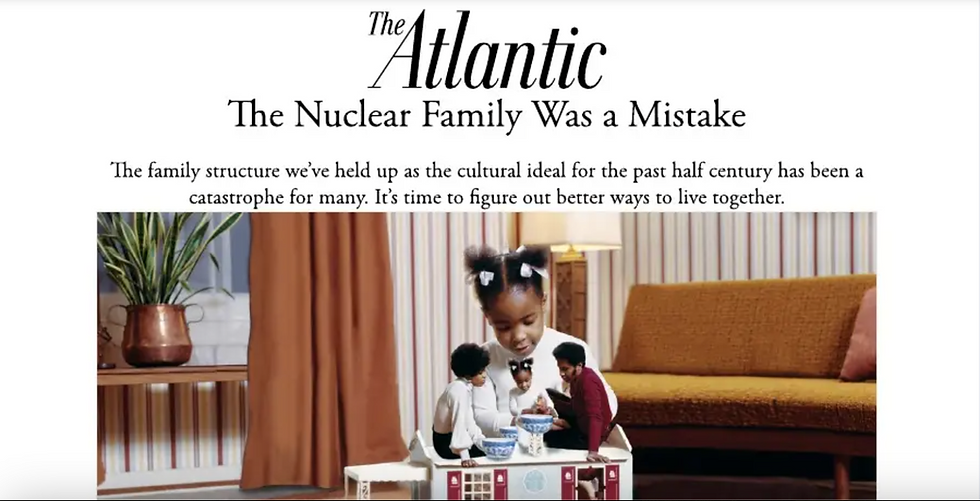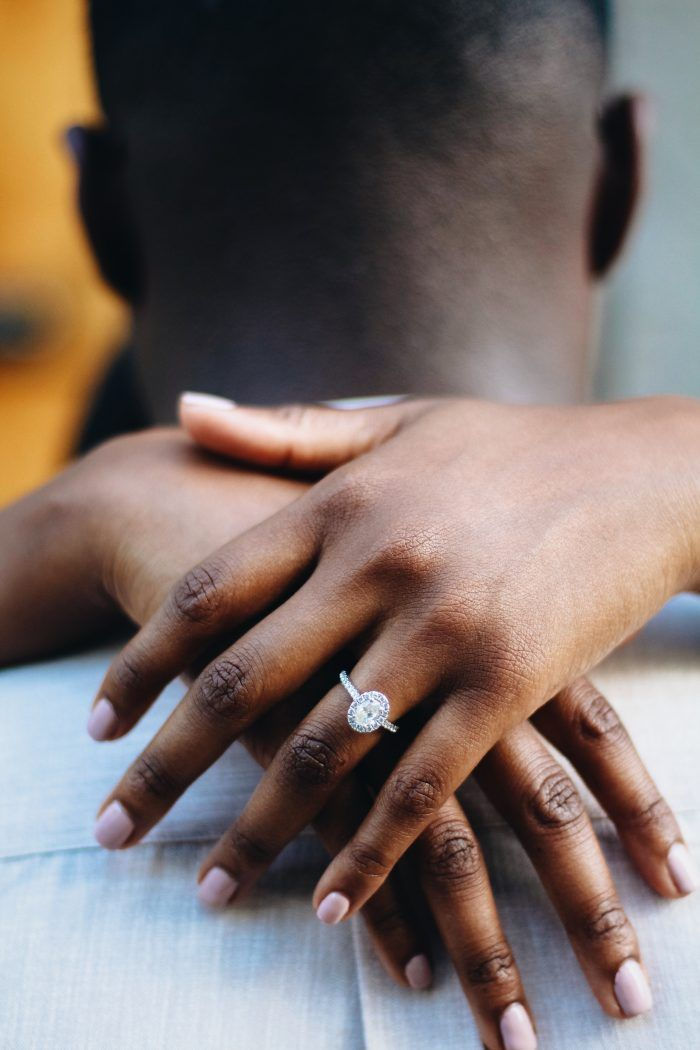Towards an Improved Version of Family and Community
- dzifajob
- Jun 16, 2024
- 4 min read
I recently appeared on an all-woman talk show, Our View to discuss questions surrounding Monogamy and Marriage. Is Monogamy Doomed?, Is Marriage still worth it? I started my contribution to the discussion saying, “Monogamy isn’t doomed, but badly wounded.” In discussion I theorised that it has held on for this long, because we have yet to find ways to address the financial, emotional, egotistical and sexual health concerns that is an implied part of “monogam-ish” or “polyamorous” relationships where both parties - NOT just the man has the ability, and the freedom to build and cultivate connections and community in an open, transparent way. Needless to say my co-hosts were unwilling to consider the merits in my suggestion, insisting that the monogamous nuclear family was the foundation of society. The evidence is all around us however that the detached nuclear family of two parents and children is not strong enough to withstand the pressures of modern life.
David Brooks wrote in the article, ‘The Nuclear Family was a Mistake’, that “people who grow up in a nuclear family tend to have a more individualistic mindset than people who grow up in a multigenerational extended clan. People with an individualistic mindset tend to be less willing to sacrifice self for the sake of the family and the result is more family disruption. People who grow up in disrupted families have more trouble getting the education they need to have prosperous careers. People who don’t have prosperous careers have trouble building stable families, because of financial challenges and other stressors. The children in those families become more isolated and more traumatised.”

I am one of those children. The loneliness epidemic being faced by people around the world, and the spiralling crime rate in Trinidad & Tobago provides daily evidence that nuclear families, that quickly turn into single parent families when one party leaves, or when tragedy strikes, is fragile and frankly unsustainable. Humans didn’t always live this way and many animals do not.
The sperm whales in Dominica live in loosely related matrifocal pods. The males come for mating season, but if a young calf requires care and his/her mother cannot provide it, another female whale will step in to ensure its survival. A girlfriend told me recently that her mother recounted that it was not uncommon in close, extended communities locally for women to take care of, and even nurse another woman’s child if there was a need.
This tracks with the way humans used to live before religion, industrialisation and capitalism took hold. Anthropologists have argued that in the beginning, in early foraging societies, “kin” did not necessarily mean a blood relative as we assume with family today. Instead it was something that could be created, where people chose to be, as the late anthropologist Marshall Sahlin wrote, “members of one another.”
Human beings are social creatures and community is needed for more than just raising children. The challenge with modern relationships including marriage and monogamy for me, is that we expect one person to do what a community once did. Marriage originated as a social and economic contract that offered economic stability and protection from violence. It evolved in its Disney era to serve the purpose of companionship and love. Today we are at a point where people expect relationships to be fulfilling in every way: practically, emotionally and sexually. In short we are asking one person, within the confines of a detached nuclear family to do what a community once did.
I do not think this is impossible to create, but it is rare and requires a level of honesty and awareness that humans are not known for. The decline in marriage and falling birthrates across the world, and here in Trinidad & Tobago should serve as a clear warning that we are on the wrong track. The solution however is not a return to the traditional nuclear family, or a time in history where women were primarily mothers, and had less rights and choice than they do today.
If friends are the family we choose, then in the absence of extended blood family, we need to create a modern clan structure where people can choose to live together and support each other. This is already happening in the United States where single mothers through organisations like CoAbode can find other single mothers interested in sharing a home. Also on the rise is co-housing projects in which groups of adults live as an extended family with separate sleeping quarters and shared common areas.
Solutions like the latter would likely solve both the loneliness epidemic affecting young people with no close familial ties, and our middle class housing crisis where persons make too much to afford government assisted housing, but make too little to afford a commercial mortgage by themselves.
I think that at the core people want flexibility, privacy and a sense of belonging. It is impossible to feel the latter without community, and the traditional, detached nuclear family has proven to be incapable of providing that.







✨